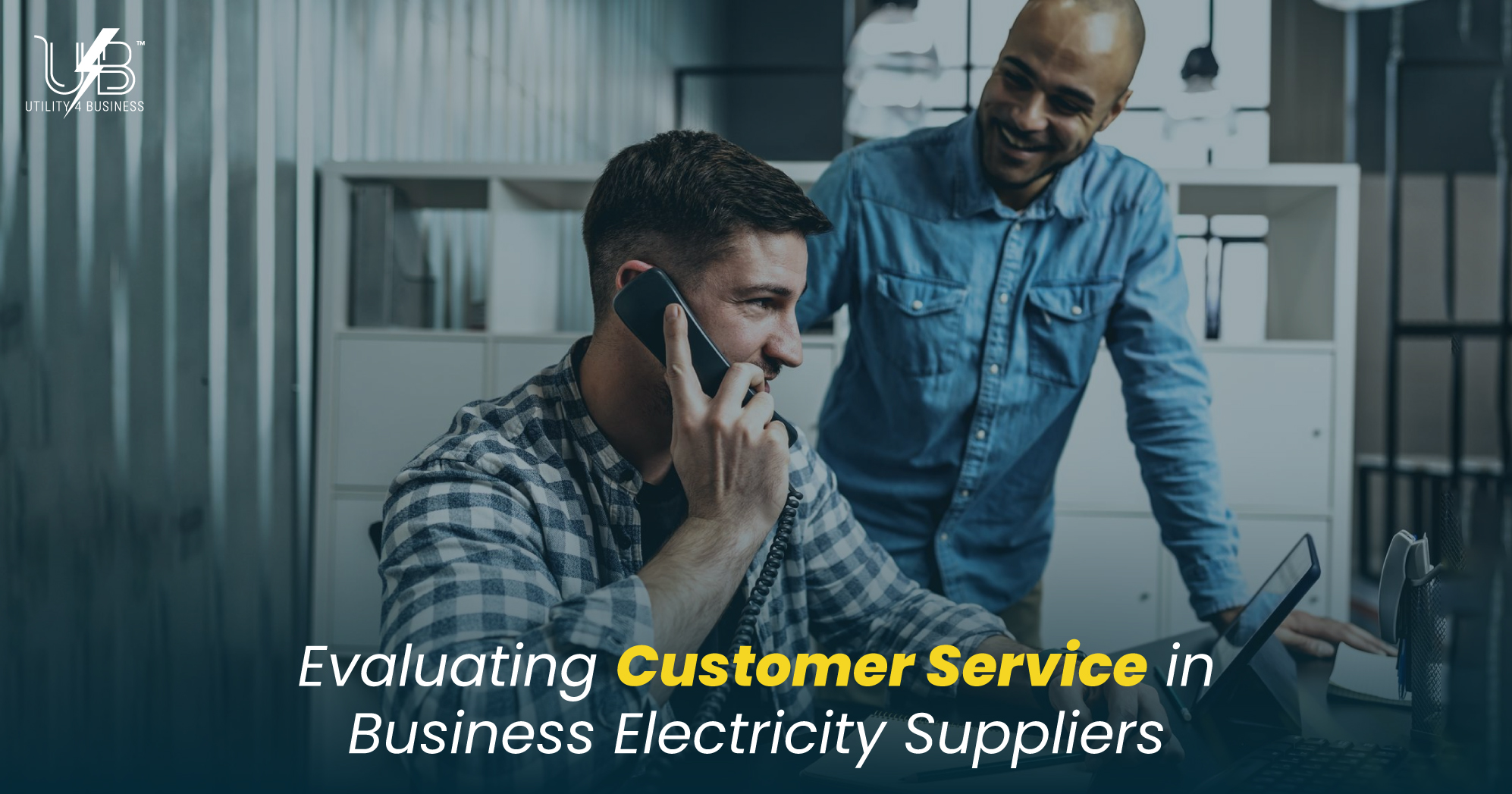Evaluating Customer Service in Business Electricity Suppliers
Compare Service, Not Just Price

Price grabs attention, but service keeps a business running. When invoices arrive late, meter reads go wrong, or a switch stalls for weeks, the impact hits cash flow and confidence. Strong customer service from a business electricity supplier means quick answers, accurate bills, and clear updates when something changes. That is why a business electricity comparison must weigh service standards as carefully as unit rates. The right partner reduces admin, prevents disputes, and frees teams to focus on customers.
Why customer service matters for businesses
Customer service is more than a nice extra. It is the front line for fixing billing errors, updating payment plans, and resolving metering issues. Long call queues and slow replies lead to missed payment windows and credit risks. Poor handovers during a switch can produce estimated bills and confusion across multiple sites. In contrast, responsive support shortens issue cycles, keeps consumption data accurate, and helps finance teams reconcile faster. As contracts become more complex, reliable service reduces the time leaders spend chasing updates and gives decision-makers a clear view of costs.
Regulatory baseline
Ofgem sets rules that shape how suppliers treat non-domestic customers. Clear terms, fair complaint handling, and honest communication sit at the core. Small businesses can escalate unresolved cases through approved redress routes, which encourage suppliers to resolve problems quickly. Standards around switching and billing continue to tighten so customers get a final bill on time and refunds without delay. When reviewing providers during a business electricity price comparison, confirm each supplier’s compliance posture and ask for recent evidence of performance against those rules.
Practical KPIs that reveal service quality
The fastest way to understand service is to track a few numbers that matter. Average call waiting time shows how quickly a business can reach a person who can help. First contact resolution indicates whether staff fix issues without multiple follow-ups. Case closure time highlights how long it takes to solve a complaint from start to finish. Billing accuracy, measured by the share of invoices later corrected or credited, reveals process quality at its source. Time to issue a final bill after a switch, and time to refund credits, reflects operational control. Escalation rate to external redress bodies shows how many cases slip through internal systems. When using a business electricity suppliers comparison, put those metrics next to price so the picture is complete.
Service channels and tools
Reliable service starts with access. Phone lines should connect to trained business teams with the authority to fix problems. Email should come with clear reference numbers and timelines. Live chat and web forms help when a quick change is needed, like updating a contact or adding a site. A modern online portal is essential. It should allow multi-site management, downloadable invoices in bulk, smart meter reads, and consumption dashboards. API or CSV export helps finance teams automate reconciliations. Proactive outage and maintenance messages reduce surprises. Strong metering support matters as well. A supplier that schedules installs reliably, fixes communication faults quickly, and prevents “dumb” reads protects billing accuracy.
Where to check supplier performance
Good suppliers publish more than marketing claims. Service reports, regulator updates, and independent ratings provide context. Look for public data on complaints and response times. Read case studies that explain how teams resolved complex issues or large site onboards. Reviews can help, but treat them as signals rather than verdicts. During a comparison of business electricity prices exercise, collect the same evidence from each provider so the assessment stays fair.
The questions that separate strong providers from the rest
Direct questions cut through crowded brochures. Request the first contact resolution rate, the median case closure time, and the share of bills later adjusted. Confirm the percentage of switches completed within standard timeframes, the average days to issue a final bill, and the average days to refund credits. Check whether a named account manager supports multi-site portfolios, and ask for the escalation path with time-bound targets. Strong providers answer clearly and share audited figures. Weak providers avoid specifics or mix service data with sales claims.
Build a simple weighted scorecard
A scorecard keeps decisions objective. Allocate the most weight to the things that protect operations. Complaint and escalation performance deserves a large share because it reflects the outcomes customers feel. Response speed and first contact resolution should follow close behind. Billing accuracy and refund timeliness should carry similar weight because they shape trust with finance teams. Digital tools, including a portal and data export, deserve meaningful credit. Switching performance, including final bill speed, rounds out the picture. Add a smaller weight for smart metering support because it prevents billing drift and keeps consumption reporting clean. Apply the same scoring method during every commercial electricity comparison so the results are consistent across suppliers.
Signals to watch
Certain signals say more than a headline rate ever will. Opaque broker fees, unclear contract terms, and shifting explanations point to trouble. Repeated estimated bills, long queues, and rising escalation rates suggest teams are firefighting. In contrast, clear SLAs, published service dashboards, and open performance data indicate mature operations. A supplier that follows through on metering appointments and shares regular updates shows respect for a customer’s time. A provider that invites feedback and fixes process gaps fast earns trust beyond the sale.
How to monitor and escalate
Service does not end on day one. Set up quarterly reviews that cover SLAs, response times, closed cases, and any credits or adjustments. Track first contact resolution over time and look for themes that repeat. Review portal usage and data quality so finance teams get clean files. Agree on escalation triggers and contact routes, and use them when timelines slip. If a case does not resolve within agreed steps, follow the proper escalation route so progress continues. Consistent review keeps suppliers focused and protects the benefits captured during procurement.
Conclusion
Utility4Business supports businesses that want a decision based on price and service, not price alone. The team builds scorecards that include response times, complaint outcomes, billing accuracy, and switch performance, then compares those results across shortlisted providers. Utility4Business manages the information gathering, checks the evidence, and presents clear recommendations that align with each organisation’s goals. During onboarding, Utility4Business tracks metering and billing milestones and steps quickly if timelines drift. For finance leads and operations managers, this approach reduces risk and saves time, while still keeping control of the final decision.
Find This Article Helpful? Share It Now!
At Utility4Business, we offer top-notch customer support and business utility solutions for businesses across the UK. Consider sharing this article and helping others discover how our expertise can add value to their business success.

Read Our Latest Posts
Explore our latest blog posts and learn how Utility4Business can support your business growth with tailored utility solutions and services. Stay ahead of the curve with the latest information from industry experts and take advantage of our user-friendly comparison services to find the best business deals.


Get Connected
At Utility4Business, our team of experts can help you figure out the highest-value business utility deals that will help your business grow over time.

